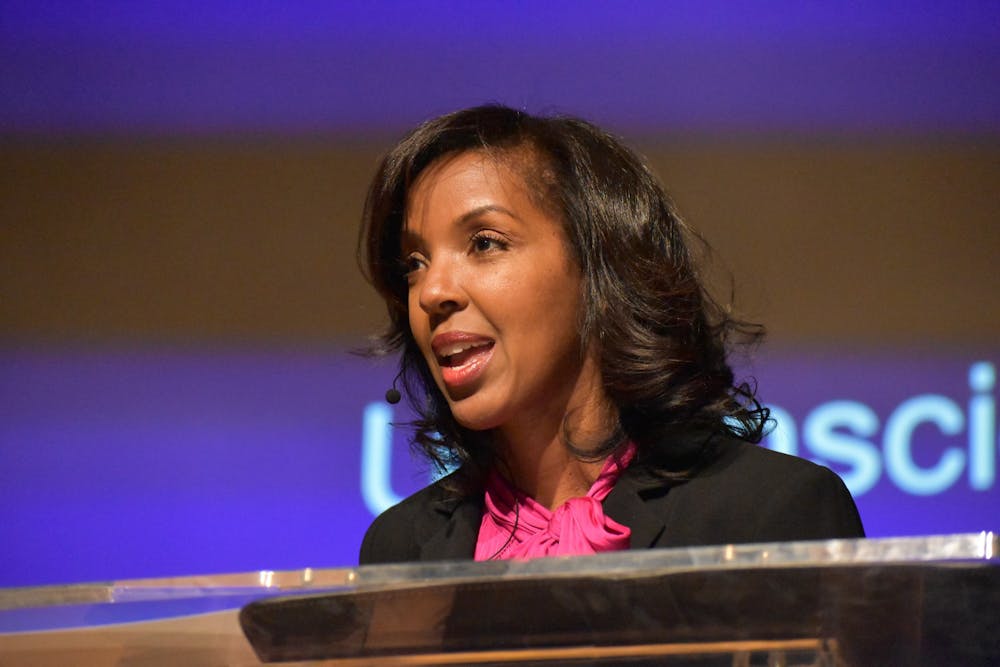When Erika H. James was appointed as dean of the Wharton School of the University of Pennsylvania in 2020, she was thrilled at the opportunity for a great job at a new school.
But James said she was unprepared for the attention she would receive as the first woman and person of color to be appointed dean in Wharton’s 141-year history.
The pressure of the role during a pandemic was enormous, she said on Monday. James was selected as the speaker for the first UNC Distinguished Lectureship on Racial Equity and Belonging, an event hosted by the Executive Branch of the Undergraduate Student Government.
Senior Anu Joy, director of the Department of Diversity, Equity and Inclusion for the Undergraduate Student Government, said the lectureship began as an idea within the Richards administration last year.
It is meant to provide a platform for individuals that carry expertise and lived experiences regarding diversity, inclusion and equity, Joy said, and acts as a chance for them to share their knowledge with UNC community members.
“The past four years that I spent at Carolina have showcased the immense need for greater conversation surrounding working toward equity across identities,” she said.
Provost Chris Clemens said that the undergraduate students of the University are the leaders of tomorrow.
“I want to highlight that this lectureship was conceived and executed by the students, and is a testimony to their dedication to service, their leadership skills and plain old hard work,” he said.
James is trained as an organizational psychologist, and has expertise in crisis leadership, workplace diversity and management strategy.



